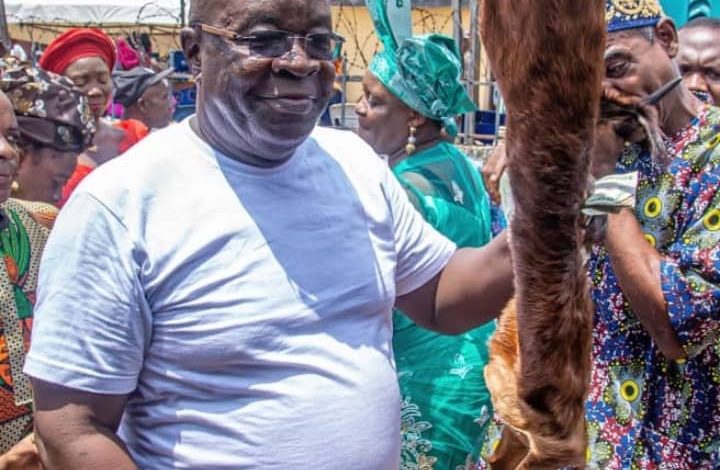REPORTER’S DIARY: In Onitsha, the Ozo Title Is More Than a Traditional Honour
Reporter's Diary

BY TONY OKAFOR
It was a grand, unforgettable day in Onitsha, the commercial hub of Anambra State, as Chief Tony Onyido — a respected son of the soil and accomplished businessman — was formally initiated into the revered brotherhood of Ozo titleholders.
The occasion marked not just a personal milestone for Onyido, but also a proud chapter in the rich cultural legacy of the ancient city.
Held at the ancestral Imeobi Ogbeoza Square, the ceremony was a vibrant display of Igbo tradition — so regal and elaborate it could rival a royal coronation.
The air rang with the rhythms of ogene (metal gong), ichaka (rattle), and udu drums as Egwu Ozo music filled the square, setting the tone for a deeply spiritual and symbolic rite.
In Onitsha, the Ozo title is far more than a ceremonial traditional honour. It is the highest form of societal recognition — reserved for men of exceptional character, integrity, and service to the community.
It confers not just prestige, but also authority and responsibility. Only the truly distinguished are considered worthy.
As the cultural and spiritual heart of the region, Onitsha lends a unique weight to the Ozo title, setting it apart from similar honours elsewhere.
Here, initiation into the Ozo institution involves a weeklong period of spiritual cleansing and atonement — a sacred rite designed to purify the body, soul, and spirit before admittance into the brotherhood.
Becoming an Ozo is also a major financial commitment. The process involves multiple stages often costing several millions of naira. It is widely believed that taking the Ozo title in Onitsha is more demanding, both spiritually and materially, than acquiring a chieftaincy title elsewhere.
For those who complete it, like Chief Onyido, the rewards are enduring: spiritual fulfilment, elevated social standing, and a seat among the council of elders and noblemen.
The induction drew a large crowd of well-wishers — traditionalists, fellow titleholders, politicians, clergy, friends, and family.
Clad in immaculate white Ozo regalia and adorned with the iconic Onitsha cap, eagle feather, ivory tusks, and the symbolic staff of authority, Chief Onyido stood tall, ready to take his place in history.
He was led into the ceremonial arena by fellow Ozo titleholders and formally welcomed into the fold with blessings and libations.
As the rites reached their climax, the crowd erupted in joy, chanting his new title name — Chinyelugo — with pride and admiration.
Traditional dancers and drummers brought the square to life with rhythm and colour, making the moment unforgettable.
Speaking after the ceremony, Onyido expressed deep gratitude and pledged to uphold the sacred values of the Ozo institution — truth, justice, humility, and service.
This honour is not mine alone,” he said. “It belongs to my ancestors, my family, and my people, who have not held this title for over 20 years. It is a door opener for all of us. I will wear it with dignity and use it in service.
With this honour, Chief Onyido joins the elite ranks of noblemen who speak not only for themselves but for their communities — shaping opinions, resolving disputes, and preserving age-old traditions.
In Onitsha, where ancient customs coexist with modern realities, the Ozo title remains a powerful symbol — bridging the wisdom of the past with the promise of the future. It reminds us that culture, identity, and leadership still hold deep meaning.
For those privileged to witness the event, it was more than a celebration. It was a living connection to heritage — and a vivid illustration that culture embodies the totality of a people’s identity, values, and way of life.
Congratulations to Chinyelugo. May your new title bring you honour, wisdom, and long life.



